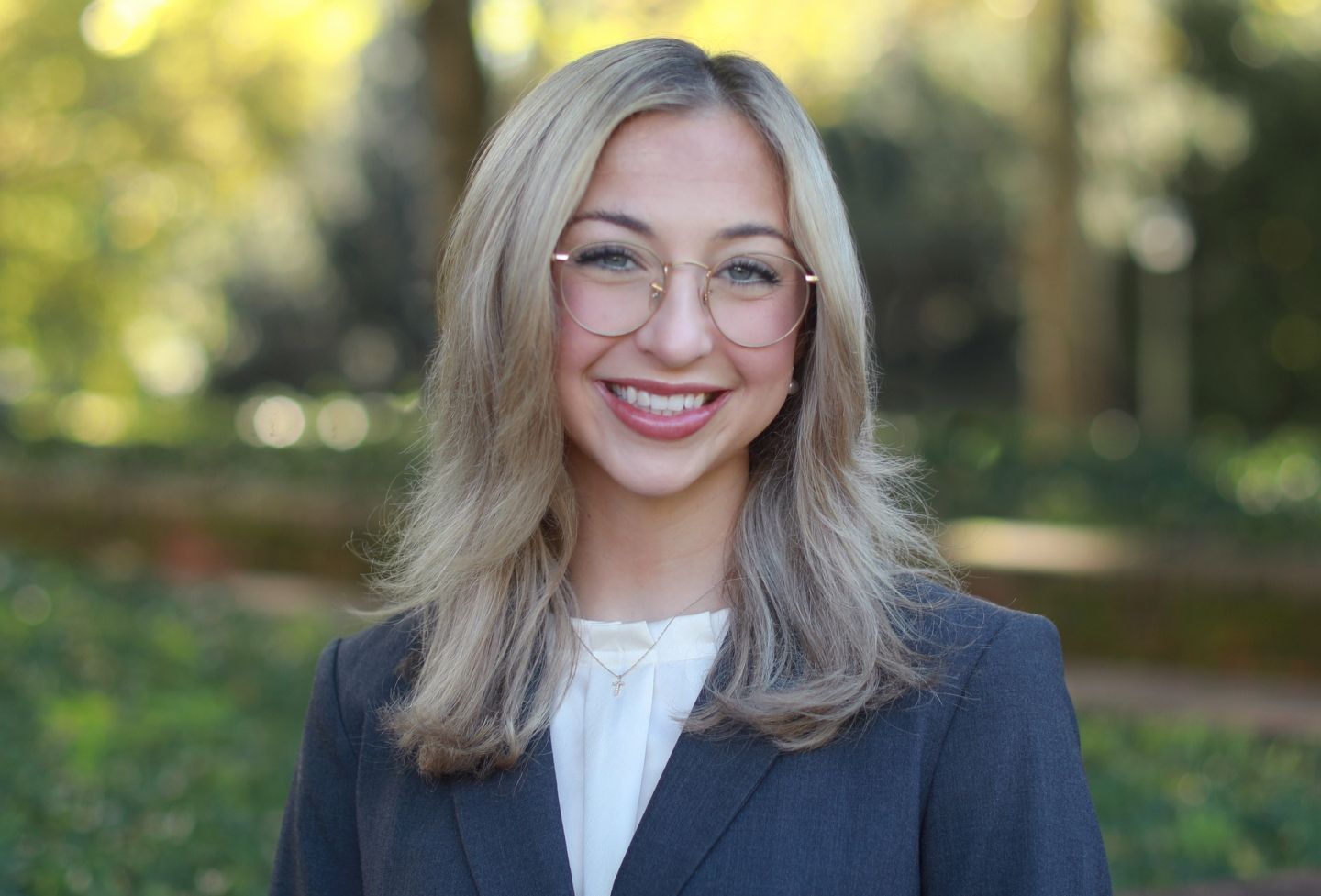The February 2020 stock market downturn spelled trouble for most investors. But 400 miles from Wall Street, the University of Virginia School of Law students running the Rivanna Investments fund knew they would bounce back as they always had.
Rivanna Investments is essentially a “teaching hedge fund,” launched in 2010 with $100,000 in seed money from the Law School Foundation, which holds and manages endowed funds for the benefit of the Law School. Nearly 15 years later, the group now manages $310,000.
“Rivanna has been my favorite, most consequential part of law school,” said former Rivanna Chief Investment Officer Joseph Martin ’24. “It’s completely changed my career trajectory, pushed me deeper into the nexus of law and business, and it’s the reason why I’m now a J.D.-MBA candidate.”
The organization is made up of around 20 students acting as analysts, five first-year board members and approximately 100 total members. Rivanna’s dual mandate is to educate students about the finance industry and investment principles to make them better lawyers, and to earn a higher return for the organization’s investor — the Law School Foundation.
Approximately 80% of the organization’s members who joined don’t have any finance training, but students work together to learn the skills needed to manage the fund. Over the years, the students’ interest in acting as analysts has varied, and it’s currently experiencing a resurgence. Martin recalled that when he joined the group in 2020, there wasn’t much of a dedicated team tackling analysis — they maybe saw one or two stock pitches per year.
In the past year, Rivanna has evaluated about 15 pitches from students and invested in four new companies, Martin said.
“Students are listening to earnings update calls, building discounted cash-flow models and getting into the advanced parts of finance,” such as cost-basis averaging and doing risk-return analyses at the portfolio level, he said.

Rivanna was able to make it through the stock market downturn of 2020 by relying on its student analysts’ advice to abandon certain positions that were likely to depreciate in value in 2020, and instead hold that money in cash until 2021, said Rivanna President Javin Dana ’25.
Professor Quinn Curtis, the associate dean for curricular programs, is a sort of in-house expert on securities and mutual funds — a topic he publishes on frequently. Curtis advises the group and approves trades as they come in. Students also deliver a detailed annual report to Curtis, the Foundation and members of the Rivanna advisory board each fall.
“The students run Rivanna very professionally,” he said. “But what’s great about the group is that it’s largely students teaching each other.”
Interest in Rivanna has surged post-pandemic, and Rivanna is now stronger than ever, its current leaders say. The organization is working to build a relationship with J.P. Morgan Private Bank, which manages a portion of the Law School Foundation’s endowment. In 2023, the group visited the bank’s New York offices and met with lawyers and fund managers.
The program has expanded considerably in the past few years. Rivanna Investments now offers a three-session crash course in the fall for first-year students about how to evaluate and value companies. First-year analysts prepare two stock valuations and accompanying recommendations every year — one in the fall evaluating a current position Rivanna holds with a recommendation on whether to buy more, hold or sell, and one in the spring evaluating a new company.
Rivanna Investments has a lot of travel planned for 2024, in part to expand their connections with industry players. The group intends to visit the D.C. offices of Latham & Watkins and Goodwin Procter and take another trip to J.P. Morgan Private Bank in New York City.
“Maybe that was something that was lost with COVID, but we are trying to jump back in and provide transactional law students with opportunities to connect with firms,” Dana said. “If the firms have already met our students in the fall, they’re quick to hire them come spring.”
The group’s bigger long-term goal is growing Rivanna into a credential that stands co-equal with the Law School’s journals in the minds of students and hiring firms alike. For many students, their Rivanna affiliation has been the first topic to come up in interviews.
“If you’re going into fund-formation law, I think the ability to analyze a stock and know exactly what your clients need can, in many ways, prepare you for practice more than just being part of a journal would,” he said.
Recently, more J.D.-MBA students have gotten involved with Rivanna, helping to forge a symbiotic connection between UVA’s Darden School of Business and the Law School. Members who take higher-level finance courses at Darden can share their knowledge with their law classmates while also connecting them with Darden Capital Management, a student-run group that manages their own fund.
Despite the demanding workload, the club had to turn away roughly half of applicants in 2023.
“It’s a really fun organization to be a part of and it’s resilient, even through hardships,” Martin said. “These are very bright and motivated students, and a lot of them see it as their baby — you’re managing the school’s money, so there’s a responsibility there.”
It may be an uncommon responsibility and opportunity for law students.
“Rivanna is, as far as I know, unique,” Curtis said. “Programs like it are standard at business schools, but not at law schools. There is no other student-run fund I am aware of that manages a portion of a law school endowment.”
Founded in 1819, the University of Virginia School of Law is the second-oldest continuously operating law school in the nation. Consistently ranked among the top law schools, Virginia is a world-renowned training ground for distinguished lawyers and public servants, instilling in them a commitment to leadership, integrity and community service.


